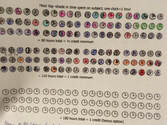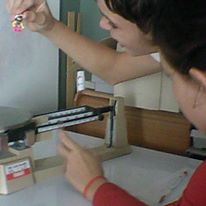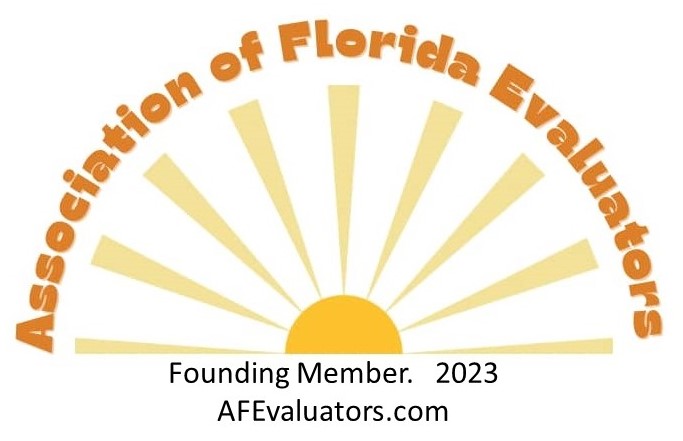|
Talking About
Florida Homeschooling... Evaluations and More |
A good evaluator works for the parents, assisting them in meeting legal requirements and in supporting them when districts overstep their bounds." |
Tips for Homeschooling Teens
intent on fighting their parents at every turn. Even teens who were previously wonderful darlings who readily went along with all the educational plans put in front of them, may now balk at their parents' plans. That's normal. It's part of how teens push to develop their own identity and get mentally and emotionally ready for a life on their own. But at the same time, parents want their teens to be on track to do well as adults, to be prepared for college or careers or trade school or whatever life holds for them. Here are some ways to move past these attitudes and successfully homeschool a teen.
0 Comments
Homeschooling High School
Bright Futures is a college scholarship funded by the state of Florida using a portion of the money collected from Florida's lottery. Using some of the money for college was part of how legislators got enough to agree to have a lottery decades ago. The scholarship was also part of an effort to end Florida's "brain drain" caused by so many Florida students leaving for colleges out of state and then never returning. Homeschool students are eligible for this scholarship--
Getting Your Homeschooled Child into College I've been part of a few recent conversations on getting a child into college. One in particular revolved around how to get into the University of Florida which rejects a lot of applicants. For over seven years, I was a volunteer interviewing applicants for the admissions committee of a top university with a very high rejection rate. I interviewed many students who applied and most were not accepted. I attended a seminar led by the Dean of Admissions for volunteers and a select group of parents who were trying to get their students admitted. So I know something about the process from the other side.
Can a Middle Schooler Earn High School Credit? The short answer is: Yes.
The longer answer is: Yes, after all, public schools routinely give middle school students high school credit, especially for classes like Algebra 1 and Spanish 1. In fact, Florida colleges--through their dual enrollment programs--often give college credit to middle school students; if students can earn college credit in middle school, they can certainly earn high school credit. Does everyone agree? No. Just today, I saw some teachers and tutors advise parents that they can't give
 Acting the part of a lawyer questioning a witness as the judge (another homeschooled boy) listens from the bench. Scripts that we found online helped when we were first beginning with mock trials. Acting the part of a lawyer questioning a witness as the judge (another homeschooled boy) listens from the bench. Scripts that we found online helped when we were first beginning with mock trials. Or... Learning Doesn't Have to Come From Textbooks. Even in High School What do you if, when touring a museum and discovering an historic courtroom that's been preserved, you hear the children pretending to part of a real trial, but you realize that they are doing it all wrong? They didn't understand enough of how courtrooms are supposed to work to get their play-acting right. If you're a homeschool parent, you might go home and research mock trials and reserve the courtroom to act out a mock trial. This was such a more interesting way to learn about civics and our government than just reading through laws or boring details about our legal system.  Wearing a Shakespearean-era costume while showing off a video she made of her version of the famous balcony scene in Romeo and Juliet. Wearing a Shakespearean-era costume while showing off a video she made of her version of the famous balcony scene in Romeo and Juliet. When I was in high school, I hated studying Shakespeare. I needed a translator as I couldn't understand the English used. But as an adult, I have been to see some of his plays in the theater and have seen adaptations in movies. Plus I realize that there are many references to Shakespearean works or characters in our culture. There are reasons why these are considered classics. I wanted my children to have a quality education and wanted that to include things like Shakespeare without feeling tortured by it like I did.
 Figuring out how to grant high school credits seems daunting to some homeschool parents, but it’s not as difficult as many imagine. There are several different options for figuring out credits. Parents can mix-and-match them, using one method for one class and another method for another class. Or pick a favorite and stick with it. A lot of high school students earn college credit before graduating high school. Several avenues for doing this are available to homeschooled students and a lot of students graduate high school as homeschoolers with several college credits or even a two-year AA degree to their name.
AP Exams Advanced Placement (AP) courses are a popular option in schools. Part of the reason for their popularity is that high schools get higher ratings if they have more of their students take AP exams and higher ratings can lead to more funding. Note that some ratings aren't even based Many parents, especially those of high school students, wonder if they need to use accredited curriculum or an accredited program, but accreditation applies to schools, not curriculum. There is no such thing as an accredited textbook, but there are accredited schools that use a variety of textbooks or other resources.
What is accreditation? Accreditation means that an accrediting agency has reviewed all aspects of the operation of a school; it has examined its facilities, its policies, its faculty and student manuals, etc., has interviewed its faculty and administrators, and has given its approval to the school's program of instruction, operations, and facilities. Accreditation gives a guarantee that the school meets certain standards. Community service is NOT required for graduation from a home education program. On the other hand, community service is not only good for the soul and the community, but can also help with college scholarships.
Documentation of community service for high school, aka the last four years of a child's k-12 education, should be kept. The last four years is an important distinction since grade levels aren't always clearly defined for homeschool students. Some graduate earlier than they would have if they'd been in a public school and some will take their time and graduate later. Scholarship programs will not accept more than four years' of community service--from the day after 8th grade--usually considered to be the end of May or early June onward--until high school graduation. It can be useful in pursuing scholarships including the Bright Futures scholarship or other programs. The Affidavit of Completion is a notarized form or letter in which a parent affirms that the student completed high school in a home education program. Florida law requires all colleges in the Florida college system to accept the Affidavit of Completion as the legal equivalent of a high school diploma. (See question 15 in the Florida Dept. of Education's official Home Education FAQ for parents.)(link updated 10/2022)
Many, if not all, Florida colleges have their own Affidavit of Completion forms, but parents can design their own. Many parents put this on their child's official final high school transcript, while others make it a separate letter or form. Changes (Jan. 2020) in Florida law require specific wording to be used on notarized documents as listed below in the sample. Check with a notary for the latest wording to be used. Also check out our information on transcripts at high school transcripts and also at https://www.flhomeschoolevaluations.com/transcripts.html |
Archives
April 2024
Categories
All
|

 RSS Feed
RSS Feed











